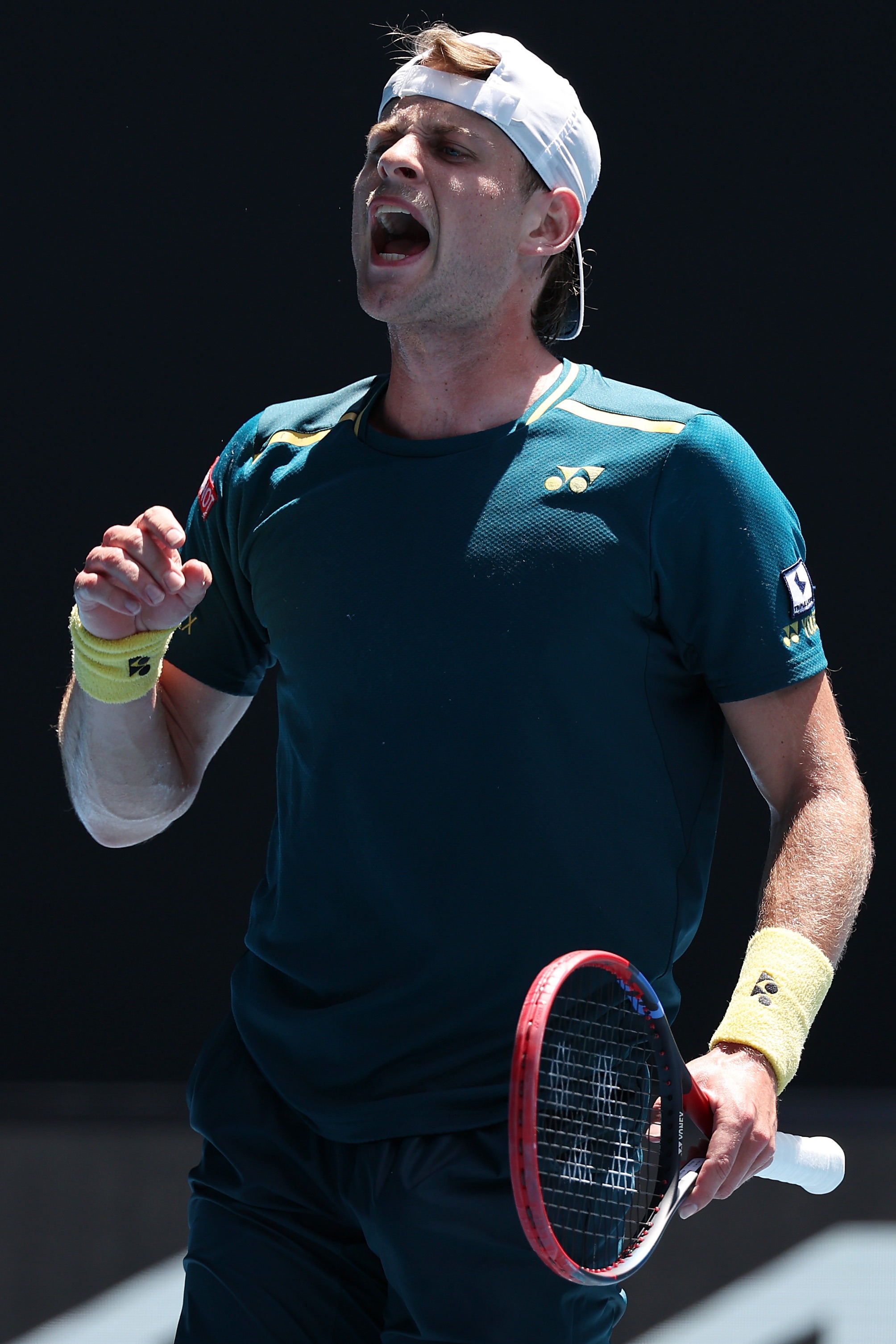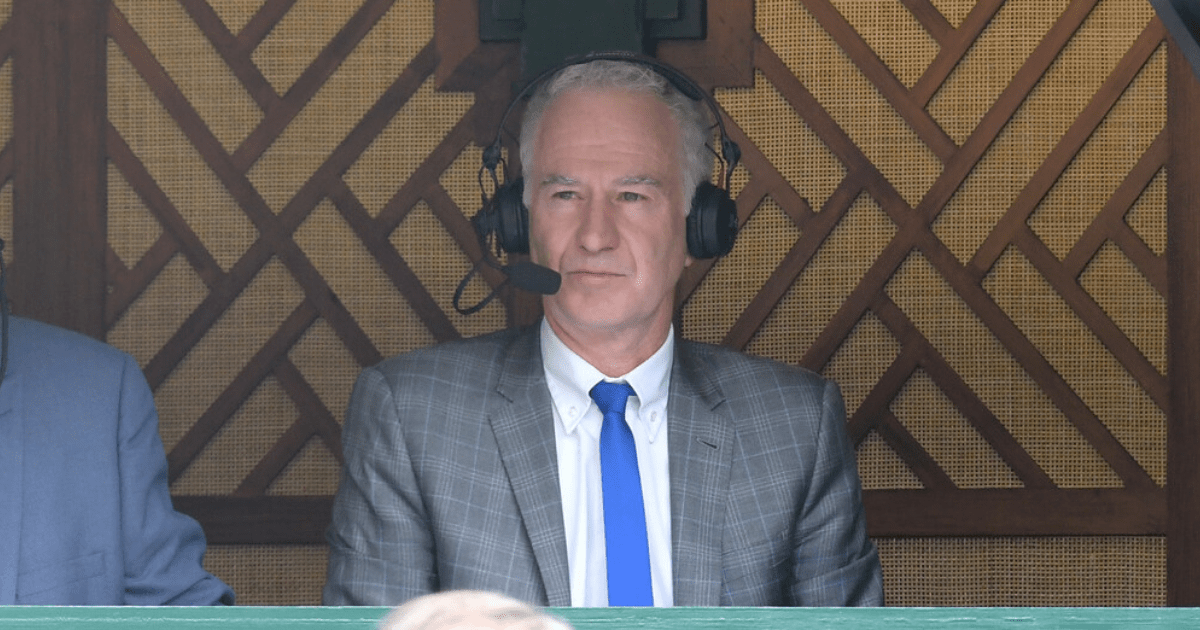McEnroe admits to having "zero clue" about star player Zizou Bergs
Tennis legend John McEnroe is facing backlash after admitting that he knew nothing about world No. 150 player Zizou Bergs during the Australian Open. McEnroe made the comment while commentating on Bergs' first-round match against Stefanos Tsitsipas.
Bergs ranked No. 129 in the world
Bergs, a 24-year-old Belgian player, is currently ranked No. 129 in the world. This is his second appearance at the Australian Open and his third time in the main draw of a grand slam. Despite his lower ranking, Bergs put up a strong fight against Tsitsipas, taking the first set before ultimately losing the match.
Backlash from tennis community
McEnroe's lack of knowledge about Bergs drew criticism from fellow tennis professionals and broadcasters. American tennis pro Thai-Son Kwiatkowski took to social media to express his frustration, stating that McEnroe's admission showed a lack of preparation and disrespect for a player ranked in the top 150 in the world. Other tennis commentators and journalists echoed this sentiment, emphasizing the importance of doing research and being well-prepared for the job.
McEnroe previously criticized for similar incidents
This is not the first time McEnroe has faced criticism for not knowing a player. Last year, he was called out for not recognizing 28th seed Nicolas Jarry at Wimbledon. These incidents raise questions about the level of preparation and respect that commentators should have for the players and the audience.

Frequently Asked Questions
How do mental and psychological aspects factor into tennis training?
Mental and psychological training is as paramount as physical training in tennis. Tennis players must learn how to handle stress, focus and the emotional highs or lows that come with competition. Visualization, goal-setting and mental rehearsals can be common techniques. Working with a sport psychologist can help players develop resilience, learn coping techniques for pressure situations and improve their mental performance to match their physical abilities on the court.
Can someone who starts playing tennis later still become a pro?
Even though it can be more difficult, someone who starts playing tennis later on in life is still able to reach professional status. The success of an individual will be determined by their athletic ability, work ethics, dedication and the availability of quality coaching and competition. The path to professional status may be more difficult for late starters, as they will have to focus on intensive and focused training.
How important is diet and nutrition in the training of an elite tennis players?
Tennis players are not exempt from the importance of nutrition and diet. An appropriate diet helps support intensive training. It provides the energy needed, aids in recovery, and lowers the risk for injury. The diet of an elite athlete is typically a mixture of carbohydrates and proteins with vitamins and essential minerals. Hydration is another critical aspect, as maintaining good fluid balance is crucial to prevent fatigue and maintain concentration during play.
What role is video analysis in training the best tennis players?
Video analysis has become a vital tool for developing and training top tennis athletes. It allows a detailed analysis of opponent patterns, technique, and match play. Coaches and players utilize video analysis to dissect strokes, pinpoint areas for improvement, and strategize against future opponents. It also aids in recognizing habits and tendencies that may go unnoticed during the heat of competition, enabling more targeted and efficient practice sessions.
How does a tennis player manage school and training?
The challenge of balancing the demands of academics and training is one that all tennis players face. This requires good time management skills, prioritization and creative scheduling. Online education and flexible academic programs are a great way to accommodate the hectic training and travel schedules that young athletes have. Support from coaches, family and educational institutions is crucial in ensuring athletes can pursue their sporting ambitions without compromising education.
Statistics
- Engaging in structured video analysis sessions has been shown to improve a player’s tactical decision-making by approximately 35%.
- On average, it’s estimated that only 1 in 5000 high-level junior tennis players will develop into internationally ranked professionals.
- Approximately 70% of a professional tennis player’s training time is devoted to developing technique and on-court strategies.
- Studies show that superior agility and speed among tennis players can reduce their reaction time by up to 30%, which is crucial during high-level matches.
- Nutritionists report that a tennis player’s diet should consist of about 55-60% carbohydrates, 15-20% protein, and 20-25% fats during intense training periods.
External Links
tennisfitness.com
wilsontennis.com
myprocoach.net
tenniscompanion.org
optimumtennis.net
How To
How to Improve mental toughness for Tennis
Mental toughness is a complex issue that can be improved through a variety of methods. Set clear and attainable goals, then measure your progress towards them. Use visualization techniques in order to mentally practice different match situations, and your responses. Use deep breathing and mindfulness exercises to improve your focus. During matches and training, you should focus more on the procedure than the final result. You will be able to maintain a regular routine. When you encounter setbacks, view them as learning opportunities and work with a coach or sports psychologist to develop coping strategies. You can improve your mental toughness by regularly exposing yourself to stressful situations.

